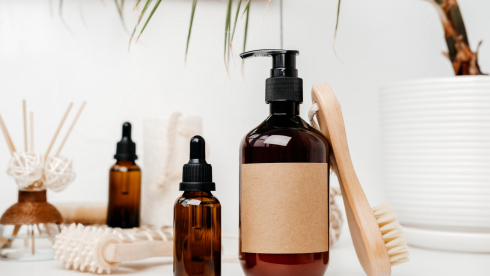Attorney General Eric Holder’s speech to the American Bar Association heralded a major breakthrough in America’s forty-year 'War on Drugs.' He announced that the Obama Administration will scale back mandatory-minimum sentences for certain non-violent drug offenses while also examining new avenues for reducing violent crime. Federal sentencing guidelines have exponentially increased the number of non-violent offenders serving long sentences since the introduction of the 1986 Anti Drug-Abuse Act. But as scholars and pundits dissect Holder’s plans and consider their practical impact one subject remains noticeably absent from the discussion: marijuana.
According to a 2010 report issued by the American Civil Liberties Union (ACLU) marijuana accounted for over 52% of all drug arrests with enforcement costs reaching nearly $4 billion per year. Although Blacks and Whites use marijuana at relatively comparable rates, Blacks are four times more likely to be arrested for weed-related offenses. This racial disparity is even greater in states like Minnesota and Iowa where Blacks are eight times more likely to be arrested. Though national polls indicate that the majority of Americans support full legalization, the federal government maintains its belief that the most commonly used illicit drug represents a significant threat to Americans’ health.
The focus on marijuana in the 'War on Drugs' is a classic case of American federalism where the will of individual states is often at odds with the federal government. In the 1930’s a number of states prohibited the use and distribution of marijuana in spite of the federal government’s claim that it wasn’t a dangerous drug like opiates. In turn the Marijuana Tax Act of 1937 sought to regulate rather than ban the substance while also increasing federal revenue. Over time, politicians’ concerns about what they perceived as the highly prevalent use of marijuana among Mexicans and Mexican American immigrants became the foundation for US efforts to close the border and force Mexico to crack down on the drug trade. Since 1996 eighteen states and the District of Columbia have legalized medical marijuana resulting in a new revenue stream for cash-strapped states. New York legislators are considering legalizing medical marijuana to help cover the $50 billion in damage wrought by Hurricane Sandy. Seventeen states including Connecticut and Vermont have moved to decriminalize small amounts of non-medical marijuana opting for substance abuse treatment over expensive incarceration.
In 2012, Washington and Colorado became the first states in U.S. history to legalize the recreational use of marijuana. Colorado officials estimate they will generate $60 million in new revenue for the next five years. But in spite of the movement toward legalizing marijuana at the state level, medical and recreational usage remain illegal at the federal level. The Drug Enforcement Administration (DEA) contends that marijuana is a dangerous drug with “no currently accepted medical use and high potential for abuse.”
Much like Holder’s proposed sentencing reforms, the effectiveness of states’ marijuana laws rest solely on enforcement and implementation. California, the first state to legalize medicinal marijuana, has been the site of intense federal raids that have drawn the ire of both Democrats and Republicans. House Minority Leader Nancy Pelosi (D-CA) criticized the Administration’s raids by writing, “access to medicinal marijuana for individuals who are ill or enduring difficult and painful therapies is both a medical and a states’ rights issue. Sixteen states, including our home state of California, and the District of Columbia have adopted medicinal marijuana laws – most by a vote of the people.” Similar raids in Washington have increased frustrations that the approach supported by candidate Obama greatly differs from that of Commander-in-Chief Obama.
During his 2008 bid for the Presidency, Barack Obama vowed that he would depart from the Bush Administration’s aggressive crack down on state-licensed marijuana dispensaries and respect states’ will. Fast forward five years and the Obama Administration “has consistently reiterated its firm opposition to any form of drug legalization. Together with Federal partners and state and local officials, the Office of National Drug Control Policy is working to reduce the use of marijuana and other illicit drugs through development of strategies that fully integrate the principles of prevention, treatment, recovery, and effective supply reduction efforts. Proposals such as legalization that would promote marijuana use are inconsistent with this public health and safety approach.”
Though celebrities like Bill Maher, Woody Harrelson, your favorite rapper (choose one…any one) and even the President have admitted to indulging in the sticky at some point, we shouldn’t expect a major federal policy shift anytime soon. Efforts to reduce the amount of time served for drug arrests is an important step in breaking America’s reliance on punishment. However, any meaningful overhaul of the criminal justice system must also address the disparities in where and whom police officers target drug searches that result in these arrests.
Dr. Khalilah L. Brown-Dean is an Associate Professor of Political Science at Quinnipiac University where she writes about American Politics, political psychology, and punishment. Find her online @KBDPHD and kbdphd.blogspot.com.













